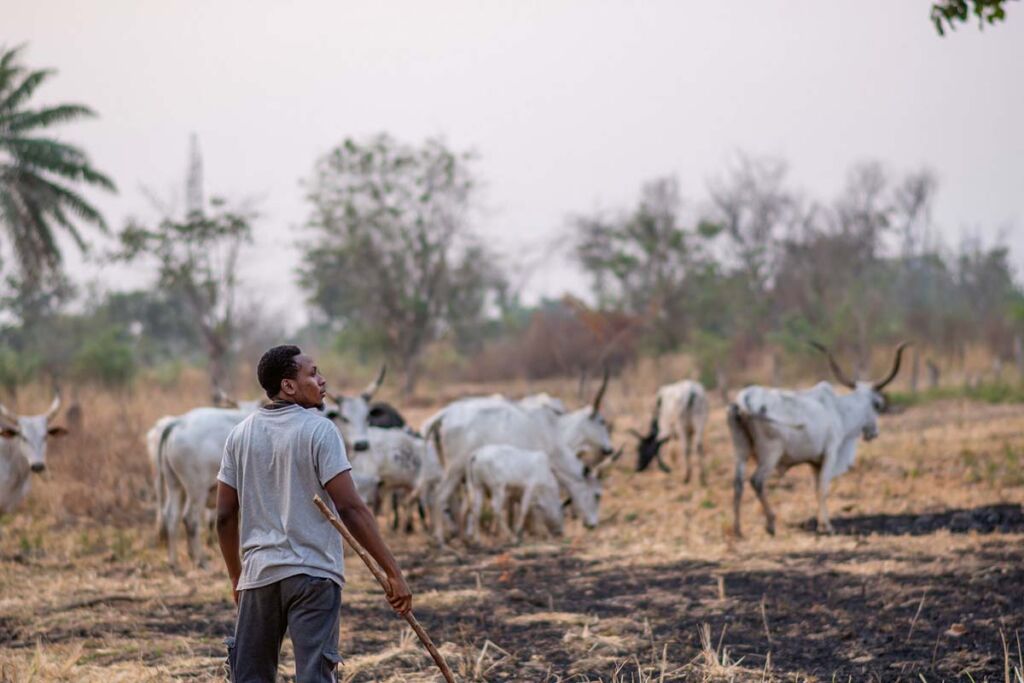[LUM#15] “We need to rethink food systems as a whole.”
Climate change, political instability, and population growth... In Africa, perhaps more than anywhere else, the issue of food security remains a challenge. What are the issues at stake? What levers can be used? Patrick Caron, researcher at the ART-Dev laboratory and former chair of the High Level Panel of Experts (HLPE) of the United Nations Committee on .


To fully understand what we are talking about here, could you tell us what is meant by food security?
The main definitions that are used as references are those from 1974 and 1996, developed during the first two World Food Summits. We can refer to the latter, which states that "food security exists when all people, at all times, have physical, social, and economic access to sufficient, safe, and nutritious food that meets their dietary needs and food preferences for an active and healthy life."
What are the major challenges facing Africa in terms of food security?
Let's start by saying that there is no single Africa, so anything we say needs to be qualified. That said, one of the specific characteristics of this continent is its population growth (INED). The expected increase of 1 to 2 billion in the world's population will mainly affect African countries, where the availability of food, in terms of both calories and protein, is lower than on other continents. Eight hundred million people worldwide, a large proportion of whom live in Africa, are hungry (FAO report), and this figure could worsen given the demographics, rapid urbanization, and the context of the climate and health crisis. Micronutrient deficiencies and the rapid spread of obesity-related problems also make food the number one public health issue. Food systems as a whole need to be rethought.
What do you mean by "food systems"?
It's the way we organize ourselves to produce and consume our food. These systems are at the heart of the transitions to come. They leave their mark on the environment at both the local and global levels. Agriculture accounts for one-third of global employment (World Bank data). The African population is mainly rural, and the conditions are not in place to create jobs outside the agricultural sector, as has historically been the case on other continents. At the same time, the incredible growth of cities and large metropolitan areas raises, more acutely than elsewhere, the very thorny issue of urban food supply.
What will be the impact on the environment?
Large areas are still sparsely populated, particularly in Central Africa. How will the development model be implemented and what will be the consequences, both locally and globally? Will we deforest as we did in the Amazon or Southeast Asia? What will be the consequences for global environmental public goods?
On biodiversity, climate, desertification, the renewal of productive capacities? On our health? We also know, as we saw in the case of Ebola, that changes in environments and ecosystems linked to production can be the source of emerging diseases.
Africa is also affected by numerous conflicts. How can political instability impact food security?
The tensions and conflicts affecting Africa have a double impact on agricultural and food issues. On the one hand, they restrict access to food for vulnerable populations, and on the other, they undermine productive capacities themselves. The agricultural sector therefore plays a key role in ensuring regional development and preventing the exacerbation of conflicts, for example in the Sahel region.
The role of the informal economy in Africa is often discussed. How does it influence trade and production systems?
This is indeed one of Africa's other distinctive features: the coexistence, especially in the agri-food sector, of informal and formal sectors, which sometimes results in a very stark dichotomy. In some countries, such as South Africa, for example, on the one hand we see large farms supplying highly structured markets via large retailers. On the other hand, we see small producers who live off their own consumption, the sale of a few surpluses, and jobs that are not solely agricultural. The informal economy plays an essential role beyond the agricultural sector: street sales, markets, trade, etc. It supports many families and also facilitates access to food for many people.
Is this a hindrance to local economies?
This informality is not just a way of avoiding taxation or health inspections; it is a social construct that, in times of crisis, contributes to the resilience of these societies. It is therefore not necessarily a problem that needs to be solved. Overall, Africa is bursting with innovation and ingenuity, with constantly changing food styles and phenomenal creative capacity. These are all assets to be promoted!
In terms of resilience, what lessons can the West learn from Africa?
It's fair to say that the West has a lot to learn from Africa, particularly when it comes to the role of the informal sector, adaptation, innovation, and proximity. At the same time, the immense and difficult transitions that African countries will have to undergo will lead them to follow specific paths, different from those taken by OECD countries. They have the intellectual, material, and creative resources to do so, and I believe that our African friends can shape the future of the world.
Find UM podcasts now available on your favorite platform (Spotify, Deezer, Apple Podcasts, Amazon Music, etc.).
*Actors, Resources, and Territories in Development (ART-Dev)
– (CIRAD – CNRS – UPVM – UPVD – UM)